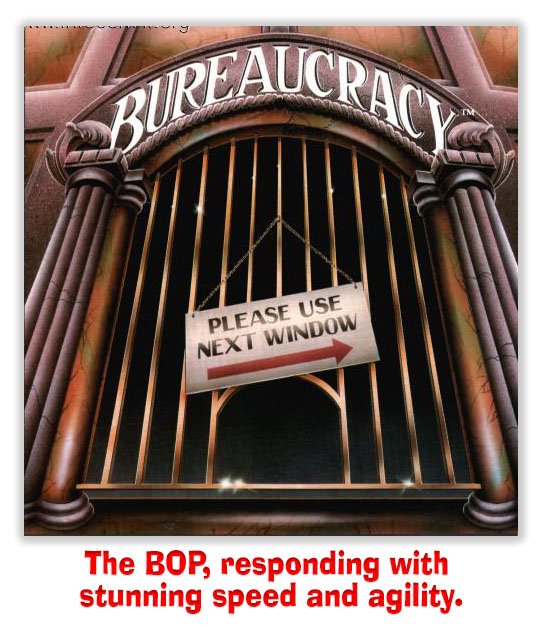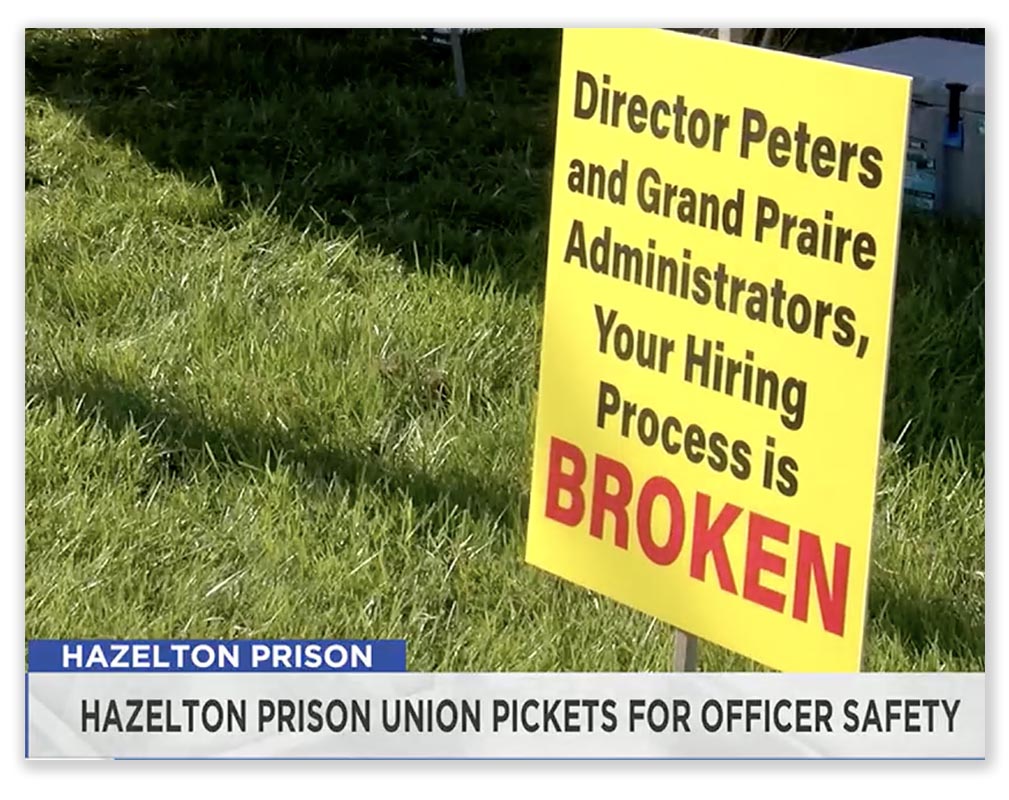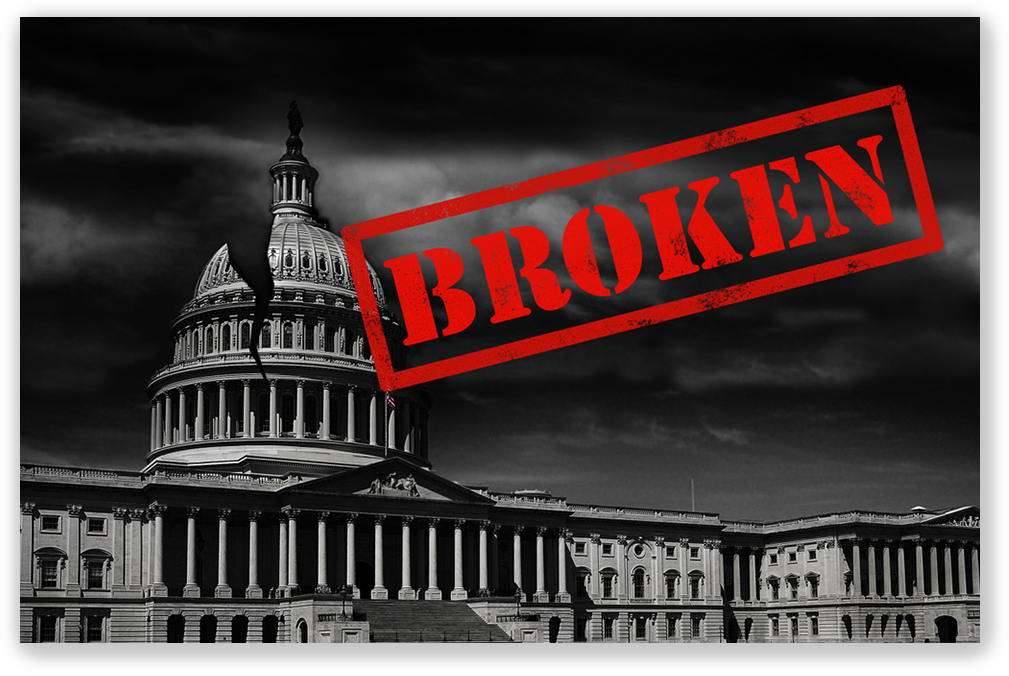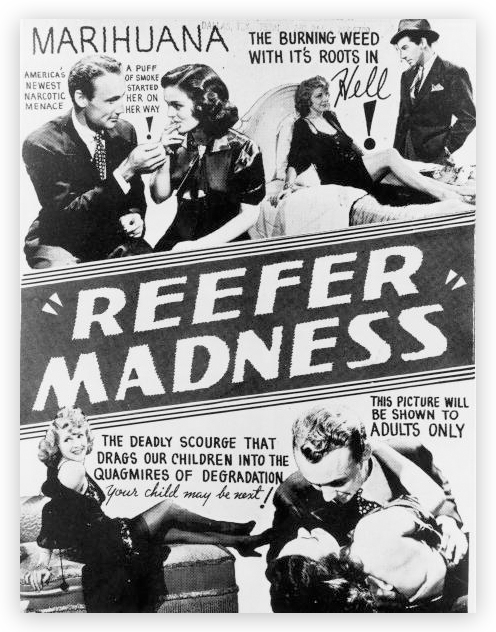We post news and comment on federal criminal justice issues, focused primarily on trial and post-conviction matters, legislative initiatives, and sentencing issues.

PUNISHING THE VICTIMS, DISSING THE JUDGE
 Nearly all inmates had been transferred out of the beleaguered Bureau of Prisons women’s facility FCI Dublin by last Tuesday, according to a BOP spokesman, with only about 23-40 prisoners–all of whom have pending releases or halfway house/home confinement transfers scheduled–remaining at the facility.
Nearly all inmates had been transferred out of the beleaguered Bureau of Prisons women’s facility FCI Dublin by last Tuesday, according to a BOP spokesman, with only about 23-40 prisoners–all of whom have pending releases or halfway house/home confinement transfers scheduled–remaining at the facility.
Several news outlets last week reported that the hasty transfers bore more than a passing resemblance to the Bataan Death March. Inmates reported they went without water or sanitary products, and some ended up sitting in their own excrement. A prisoner’s parent told KTVU-TV in Oakland that when the inmates asked where they were going,
“They were told ‘none of your business,’ or ‘SFTU, see, this is why Dublin is closing, you all need to learn to keep your mouths shut. I gave up my Saturday off to move you girls.’ The other CO said, ‘I came out of retirement to help move you bitches.’
“The bus driver played a children’s recording of the Wheels on the Bus over and over again at full volume, and then played loud rap music with sexually explicit language about sex acts.
“He told them the more they fussed, the louder it was going to be,” [the parent wrote to the TV station]. “All thru the 12 hours they were called bitches. They were told they were the reason for the closing of Dublin. They should have kept their mouths shut.”
 The San Jose Mercury News reported that one source said of the closure and transfer, “I have witnessed people fighting. I have witnessed people crying. I have witnessed people drinking pills because they just want to pass out and not think about it. I have witnessed people vomiting. Another lady over here next to me, she was cutting herself. We have witnessed all of that. And even officers over here are crying because that’s how crazy it is.”
The San Jose Mercury News reported that one source said of the closure and transfer, “I have witnessed people fighting. I have witnessed people crying. I have witnessed people drinking pills because they just want to pass out and not think about it. I have witnessed people vomiting. Another lady over here next to me, she was cutting herself. We have witnessed all of that. And even officers over here are crying because that’s how crazy it is.”
Members of the Senate Judiciary Committee sent a letter to BOP Director Colette S. Peters expressing concern over claims of a chaotic transfer. The letter, signed by Committee Chairman Richard Durbin (D-IL) and four others, alleged that
“concerned stakeholders and advocates have made alarming reports about the ensuing chaos. These reports include: unavailability of medical staff; inadequate-to-no medical attention, including for individuals expressing suicidal ideation; improper medical clearance prior to transport; lack of food and water for those remaining in the facility awaiting transfer; mistreatment, harassment, neglect, and abuse while in transit; and confiscation of personal property. This reporting is appalling and even more concerning in light of the well-documented abuses that have taken place previously at FCI Dublin…”
The letter demanded that the BOP director provide the Committee with information on how the agency has prepared to close FCI Dublin, including its written plans on the “safe and humane release from custody.”
On that same day that the BOP announced Dublin would close, U.S. District Judge Yvonne Gonzalez Rogers, the Oakland, California, judge overseeing the class action suit against Dublin officials, ordered a halt in the transfers so that the special master she had appointed to oversee Dublin could review the process. A review of each prisoner’s status would “ensure inmates are transferred to the correct location,” the judge wrote in her April 15 order. “This includes whether an inmate should be released to a BOP facility, home confinement, or halfway house, or granted a compassionate release.”
 The BOP pushed back, filing a motion for relief from the Judge’s order, questioning the authority of the special master and complaining that the judge’s order amounts to “a de facto requirement” that the BOP keep the prison open. “The Court not only lacks jurisdiction to impose such a requirement, but it is also antithetical to the overall objective of safeguarding inmate safety and welfare,” the motion complains. “Extensive resources and employee hours have already been invested in the move.”
The BOP pushed back, filing a motion for relief from the Judge’s order, questioning the authority of the special master and complaining that the judge’s order amounts to “a de facto requirement” that the BOP keep the prison open. “The Court not only lacks jurisdiction to impose such a requirement, but it is also antithetical to the overall objective of safeguarding inmate safety and welfare,” the motion complains. “Extensive resources and employee hours have already been invested in the move.”
As of yesterday, the motion has not been ruled on. Given that the BOP has already transferred up to 96% of the Dublin inmates–many in horrific conditions–the BOP appears to have presented Judge Gonzalez Rogers with a fait accompli that the Court is unlikely to be able to undo,
 In a case of the BOP really not getting it, KTVU reported that in an interoffice memo sent last week, Director Peters “commended her staff for their ‘tireless efforts in facilitating the successful transition’ of women from FCI Dublin… Peters said that the transfer involved ‘careful planning and coordination to ensure the safe transfer of women to other facilities, with special attention given to their unique programming, medical, and mental health requirements’.”
In a case of the BOP really not getting it, KTVU reported that in an interoffice memo sent last week, Director Peters “commended her staff for their ‘tireless efforts in facilitating the successful transition’ of women from FCI Dublin… Peters said that the transfer involved ‘careful planning and coordination to ensure the safe transfer of women to other facilities, with special attention given to their unique programming, medical, and mental health requirements’.”
It is perhaps unsurprising that the Federal Prison Oversight Act (H.R. 3019), introduced a year ago, was approved earlier this month by the House Committee on Oversight and Accountability.
Under the bill, which still must be approved by the full House and Senate before becoming law, the Dept of Justice’s Inspector General would conduct periodic prison inspections of BOP facilities. The bill would require the attorney general to ensure the inspectors have “access to any covered facility, including the incarcerated people, detainees, staff, bargaining unit representative organization, and any other information” needed. The assessments “may include” incarceration conditions; staff adequacy and working conditions; availability of FSA programs; SHU practices; prison medical and mental health services; and violence, sexual abuse and excessive-force allegations.” The bill would establish an ombudsman to whom prisoners and loved ones could complain.
Associated Press, Senators demand accounting of rapid closure plan for California prison where women were abused (April 24, 2024)
KTVU, FCI Dublin prison closure: Women describe horrific journey across US (April 22, 2024)
KTVU-TV, U.S. Senators call FCI Dublin transfer of women ‘appalling’ (April 25, 2024)
Senators Richard Durbin, Cory Booker et al., Letter to Colette S Peters (April 24, 2024)
San Jose Mercury News, Chaotic Dublin prison closure leads to fighting, crying, cutting, inmates say (April 24, 2024)
Associated Press, Feds push back against judge and say troubled California prison should be shut down without delay (April 18, 2024)
KTVU, BOP director commends FCI Dublin staff, despite accounts of abusive behavior (April 24, 2024)
HR 3019, Federal Prison Oversight Act
– Thomas L. Root















 Of all the criminal justice reform bills in Congress – the
Of all the criminal justice reform bills in Congress – the 













